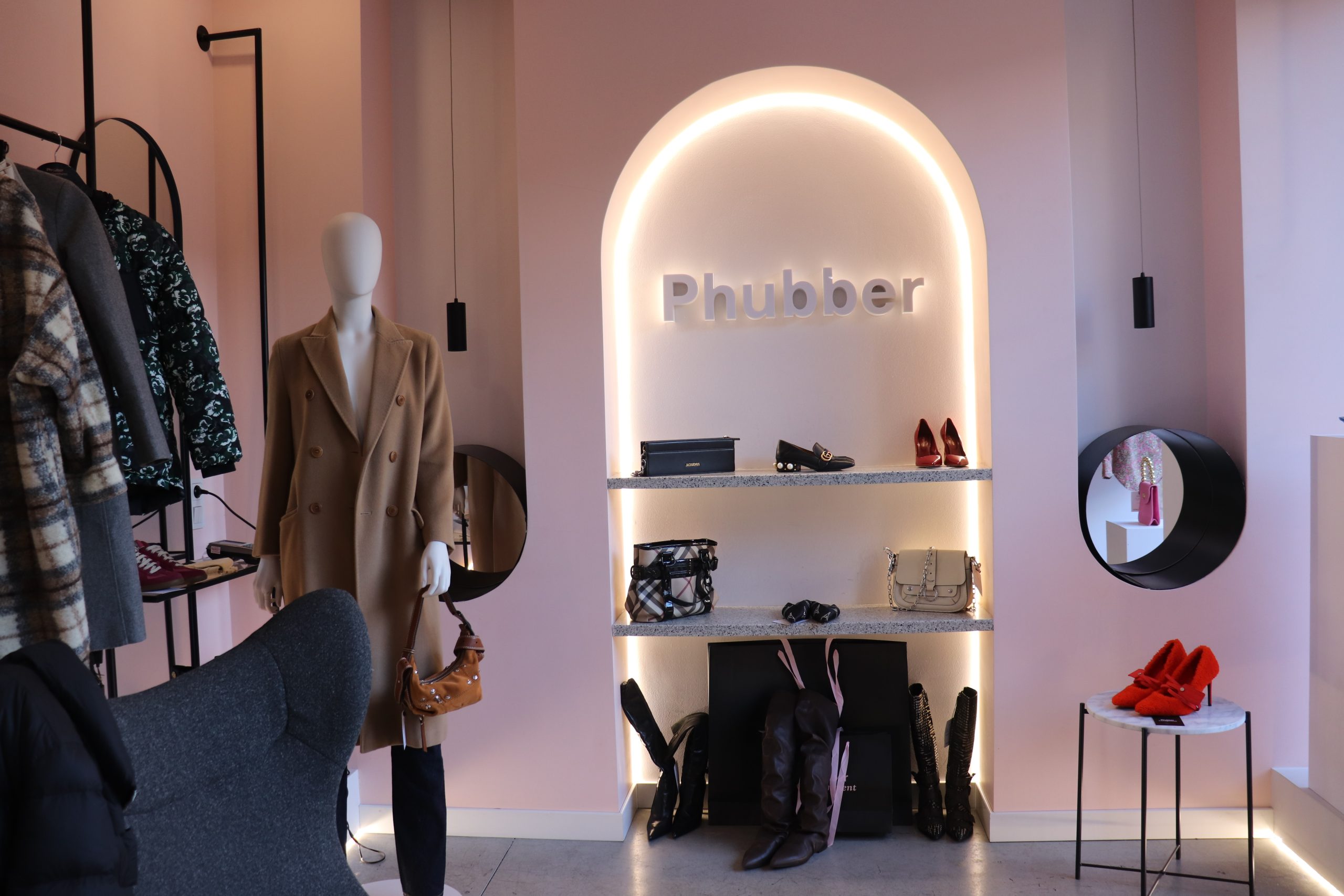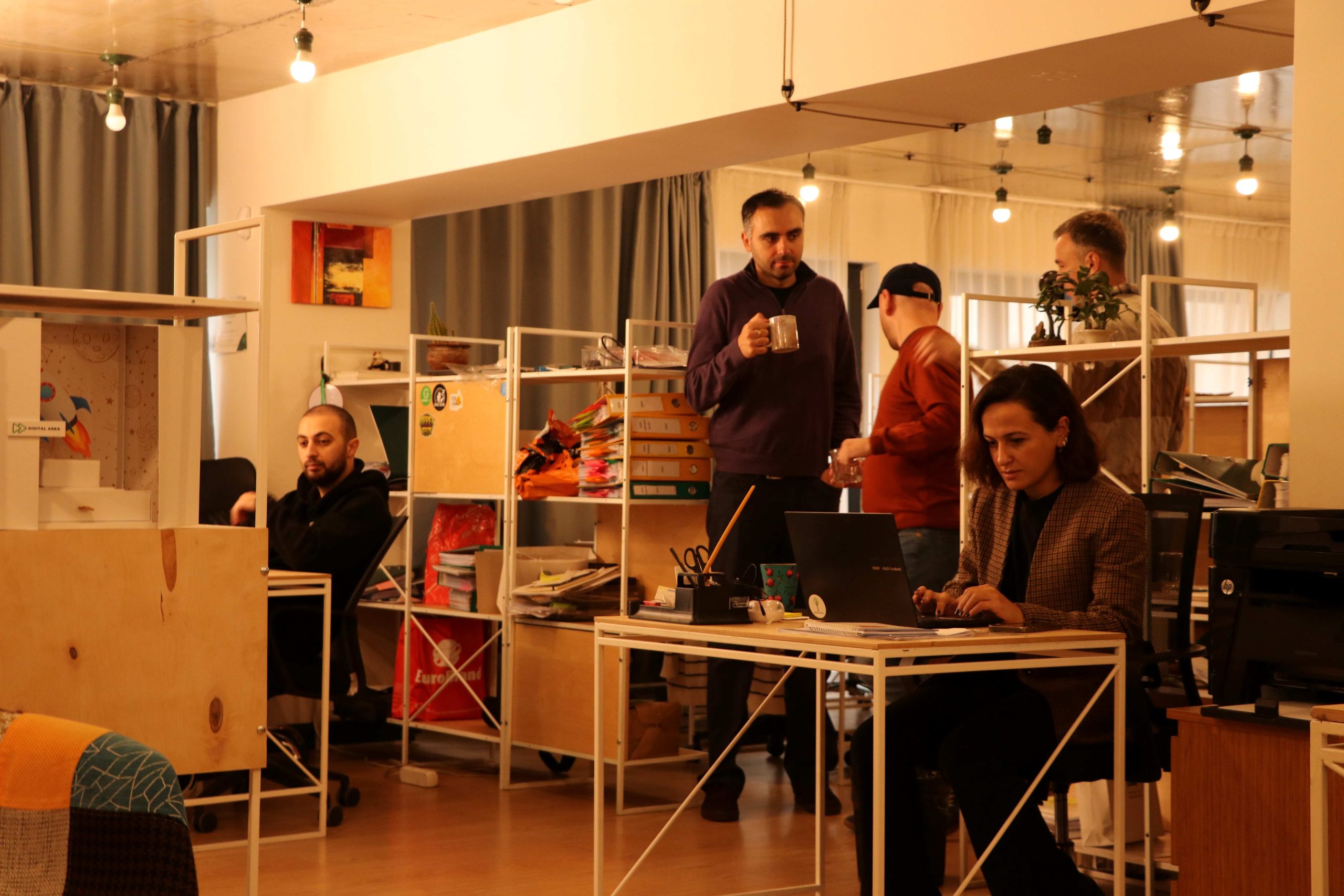"My goal is to stop waste and promote circular thinking" - Eka Asatiani
Eka Asatiani
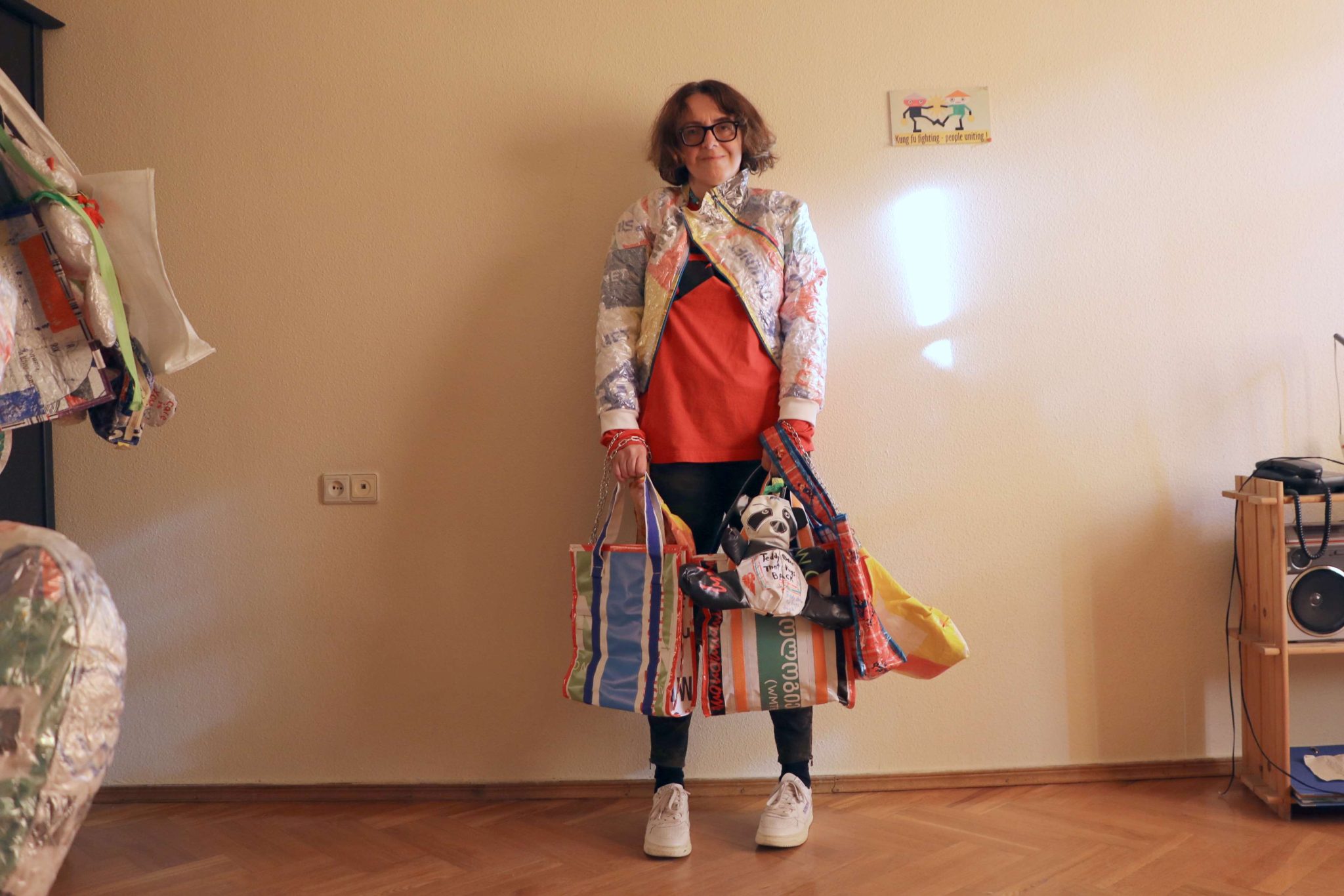
Bags, raincoats, hats, tablecloths are just a small list of unique design items that Eka Asatiani creates from plastic waste.
No two things are the same. And, at first glance, it is difficult to imagine that they are all made from discarded plastic bags, T-shirts, banners or plastic bottles.
- New life for scrap wood: how CENN helps green and social entrepreneurs
- Biodegradable napkins from Ninotsminda – How a 30-year-old woman manages a family business
- Youth against climate change at a regional level with support of EU and CENN
Eka collects garbage herself, but friends and relatives also help out. Eka jokes: “I am a garbage woman, and my goal is to stop waste.”
This is both a protest and an attempt to set an example for others.
For Eka this is not a business. The things she creates are her means of communicating with the world around her. In this way she expresses her heartache and tries to make others think.
In this article we will tell you how the idea of turning plastic waste into unique things was born, how the Plasticwatcher.ge website came about, and why it is important that we start taking care of waste reduction.
“Who am I? Garbage woman”
“Who am I? Garbage woman. I collect garbage and create things, I arrest garbage,” Eka Asatiani tells me when I ask her to tell me a few words about herself.
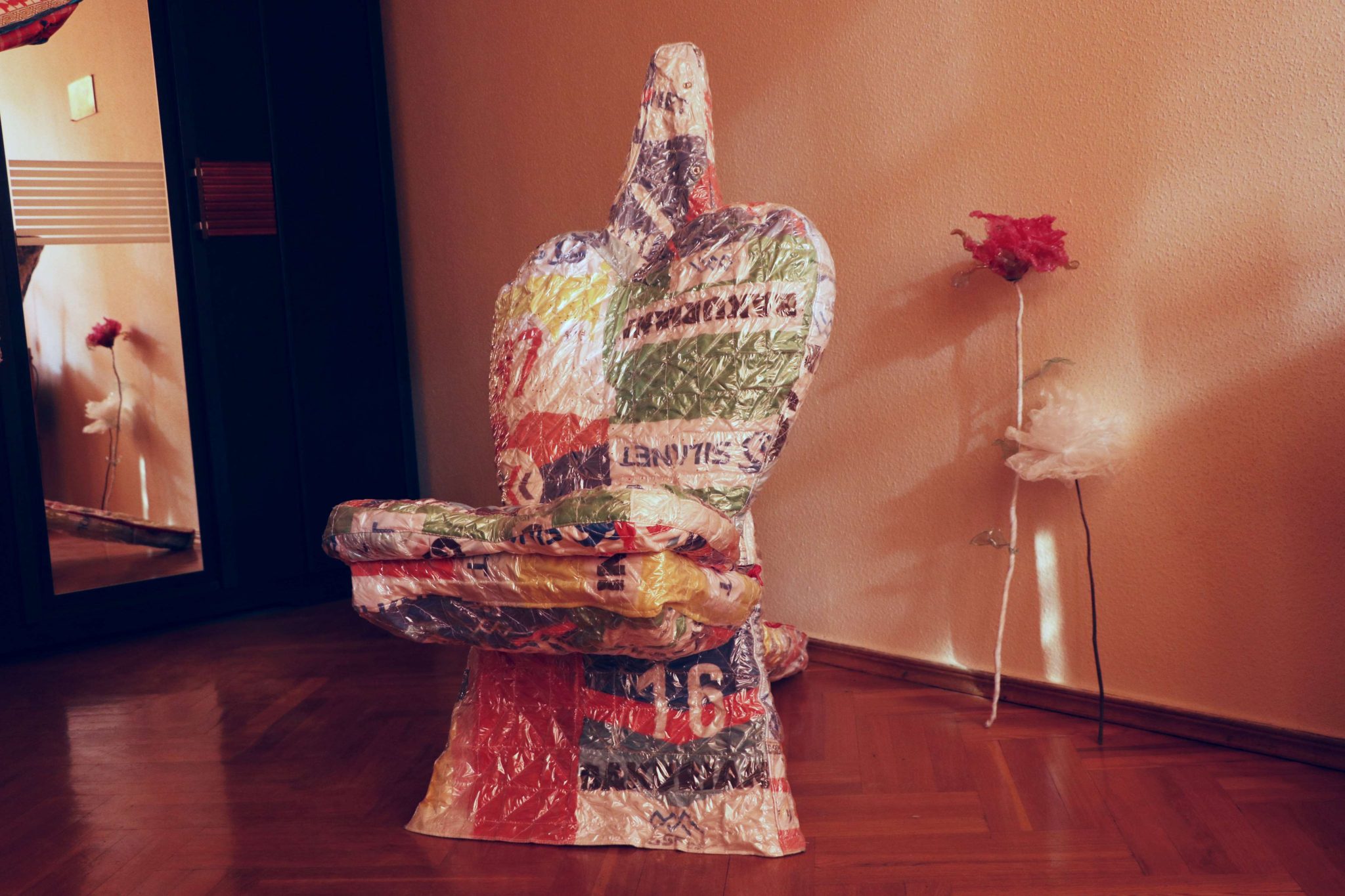
We are in Tbilisi, in Eka’s house. In the middle of a small room, illuminated by the December sun, there are two original armchairs. Both are made from trash.
In the corner of the room is an old wooden rack filled with bags and other uniquely designed items. A dog-shaped bag is visible hanging on the hanger.
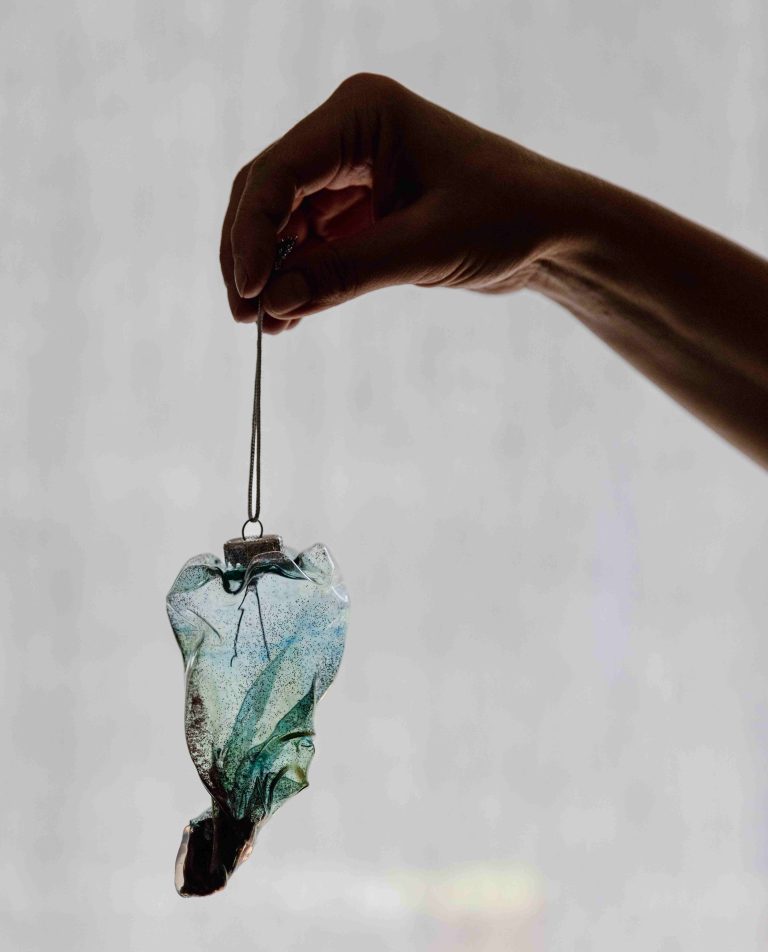
I go to the kitchen to get a chair. On the table is a huge box of Christmas tree decorations made from plastic bottles.
How can you create such magic from those bags and bottles that we throw away dozens of times a day?
Eka Asatiani is not an ecologist or a designer. Her first profession is a philologist, specializing in English. She chose public administration as her second profession. Now she works at an international organization.
“I don’t like to lecture. I think that an example is more contagious, and I myself try to enjoy it,” Eka says at the beginning of the conversation:
“If at least one person likes my philosophy of life and asks me: “How do you live? How much trash do you accumulate? What are your daily choices?’ I’ll be happy.”
About 1.1 million tons of solid waste are generated annually in Georgia. Waste recycling continues to be a big problem in the country. Plastic bags even on trees, piles of plastic bottles in ravines and rivers can be seen in almost every corner of Georgia. Plastic makes up the largest share of trash accumulating on Georgia’s beaches. Lately we are increasingly hearing talk about waste sorting and recycling. Many organizations and volunteer groups have begun to sort garbage and reduce the amount of single-use plastic, but given the overall scale of the problem, this is still a drop in the bucket.
Her philosophy of life is to protect the environment from waste. This is a philosophy, a way of life, and a rule. Eka tries to stick to it with every step she takes.
For several years now she has been collecting plastic waste, recycling it and creating multifunctional items.
There are several reasons for her activity. First, this is a kind of protest:
“Since our country does not have a culture of sorting and recycling waste, I want to influence people in this way and make them think. A person can cause a lot of harm with one thoughtless act, such as buying water in a plastic bottle, which he then throws into the environment.”
And although Eka is not an ecologist by profession, she knows very well how a plastic bottle or plastic bag entering the environment breaks the chain of biodiversity:
“If environmental pollution continues at this rate, soil degradation is inevitable and hence this could have a very big impact on food security as well.”
How it all started
Eka loved to rearrange things since childhood:
“My mother worked abroad, and she brought me many clothes. I remember I always tried to change something. Then, when the borders opened, shops appeared and I became more interested in consumer behavior.”
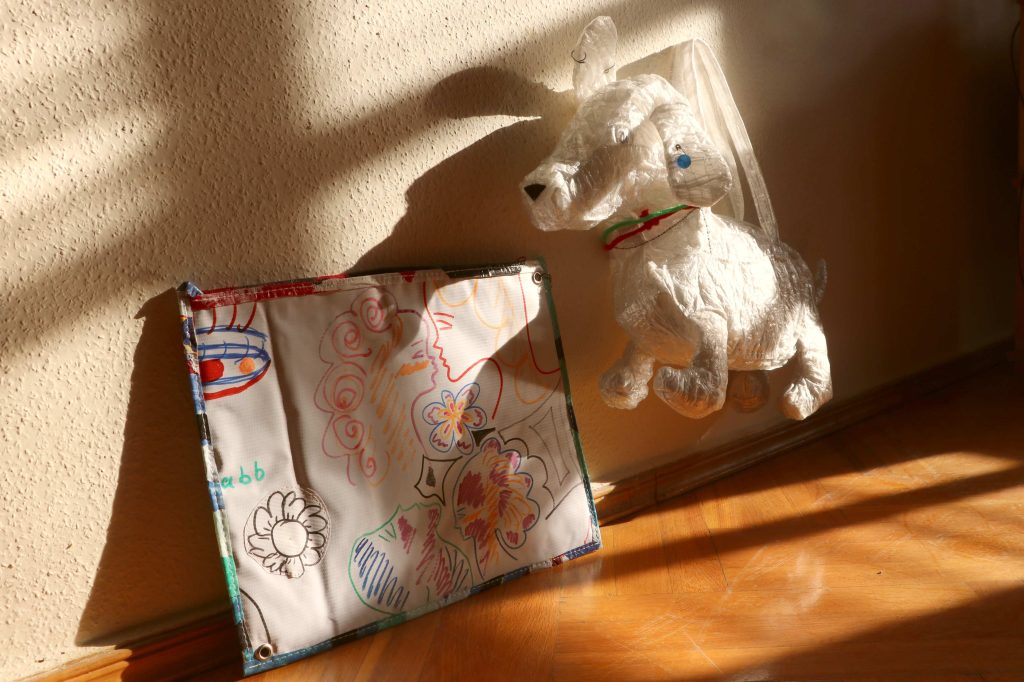
Then she realized that beautiful clothes are more of a momentary pleasure. It leaves behind a huge negative impact on the environment, “so we have to go back to childhood.”
The fashion industry creates jobs, provides spectacle, dresses and entertains us. However, all this comes at a high cost to the environment. The fashion sector is considered the second most polluting industry. If large clothing and footwear manufacturers do not change anything, in the future they will be among the “creators” of environmental disaster.
Eka started collecting plastic waste and giving it a second life five years ago. At first she collected the garbage herself. Her morning began with a walk around the outskirts of Tbilisi:
“I started experimenting with bags and cellophane at home. I got pretty interesting material that could be used to make eco-friendly fashion items.”
Everything she has created so far is purely a product of her imagination. Having collected waste, she first thinks about what can be made from it, then creates a design and concept, and then, with the help of her colleagues, begins to create.

She herself discovered and studied these techniques. Eka says that this is all an experiment, some scraps need to be processed with a heat press, some need to be disassembled and converted into fabric.
Most importantly, none of her items is created simply.
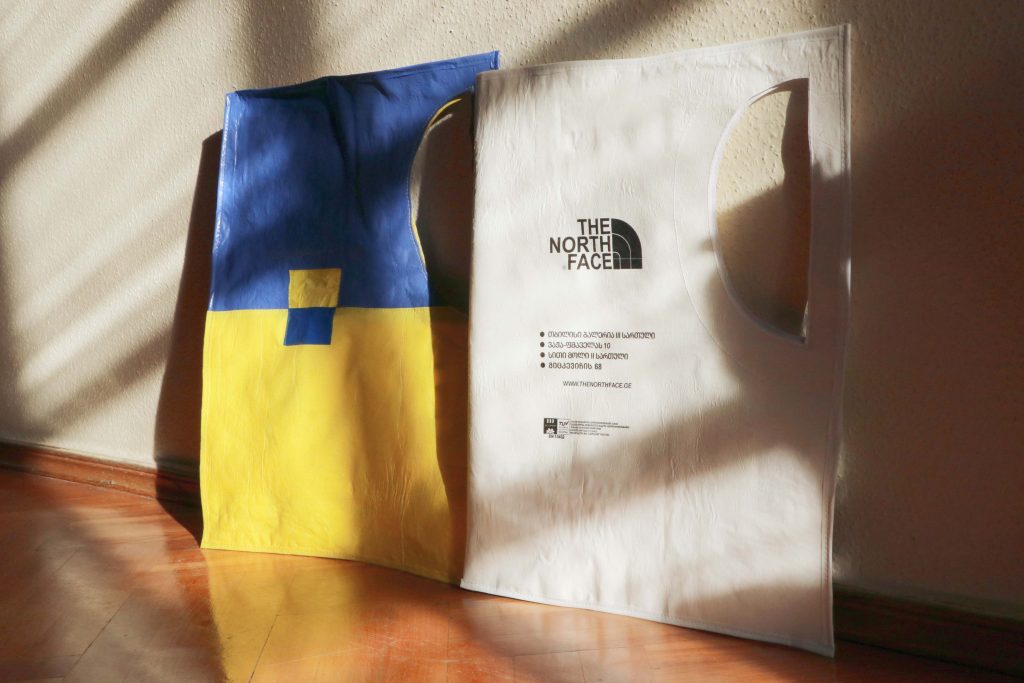
She tries to create things that won’t end up in landfills because people will use them until they are no longer useful.
“It’s important to me that the waste lasts as long as possible. So I sometimes think that, for example, I will make a flower, and then three plastic bags will not end up in the soil. If I make a raincoat, I put a note on it that if it gets damaged, don’t throw it away, repair it, paint it, do embroidery, use tape and it will come back to life.”
This is the principle of the circular economy.
Plasticwatcher.ge and products from Eka outside Georgia
In 2019, Eka created the company Plasticwatcher.ge.
Plasticwatcher.ge collects/recycles used plastic bags and creates environmentally friendly products.
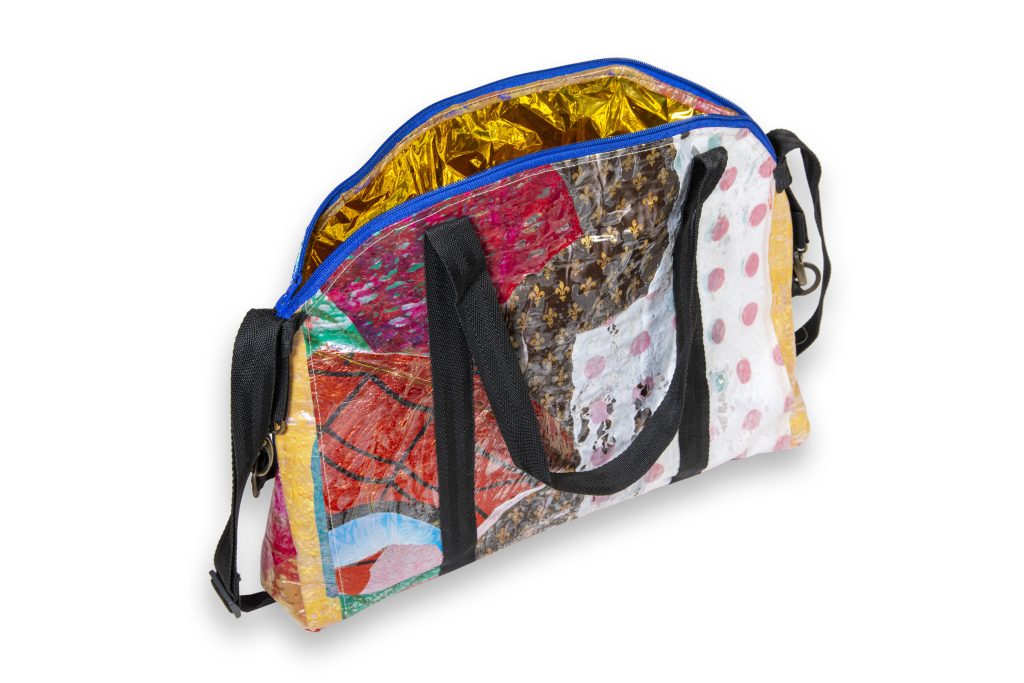
Plasticwatcher.ge already has several awards. With a grant received from the Bank of Georgia, Eka bought the sewing machines she needed.
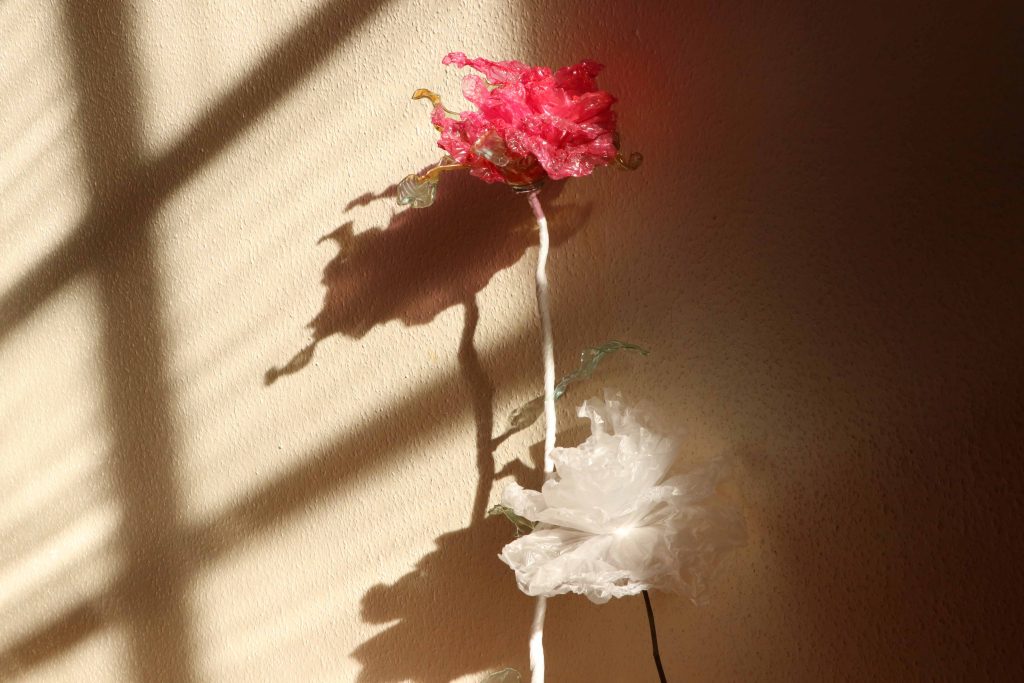
Plasticwatcher.ge also won the TBC Bank Business Award for “Outstanding Social Responsibility”, and the bank financed the creation of her website.
Eka thought for a long time about what the site should be. It wasn’t supposed to be “educational”. According to Eka, it should be a space for communication and inspiration. Moreover, if someone wants to buy a product posted on this site, they should be able to do so easily and conveniently.
“I created this website to make it accessible all over the world,” Eka says.
And so it happened.
Plasticwatcher.ge was shortlisted for the Italian competition www.guiltlessPlastic.com. Eka’s things were exhibited in Milan. From there, her unique items began traveling around the world. Eka’s handicrafts went to America, Italy, England and many other countries.
Guiltless Plastic by Rossana Orlandi is an international project that aims to engage designers and creative communities around the world to give a second life to plastic and other types of waste.
Reduce, reuse and recycle polyethylene and other waste into sustainable fashion – that’s Eka’s motto, and it’s the first thing you see when you visit the site.
“We are trying to protect the environment from pollution from plastic bags and household product packaging waste. It is important that people around us understand the sad consequences of uncontrolled release of waste into the environment. They must cultivate a culture of waste sorting,” Eka writes on her website.
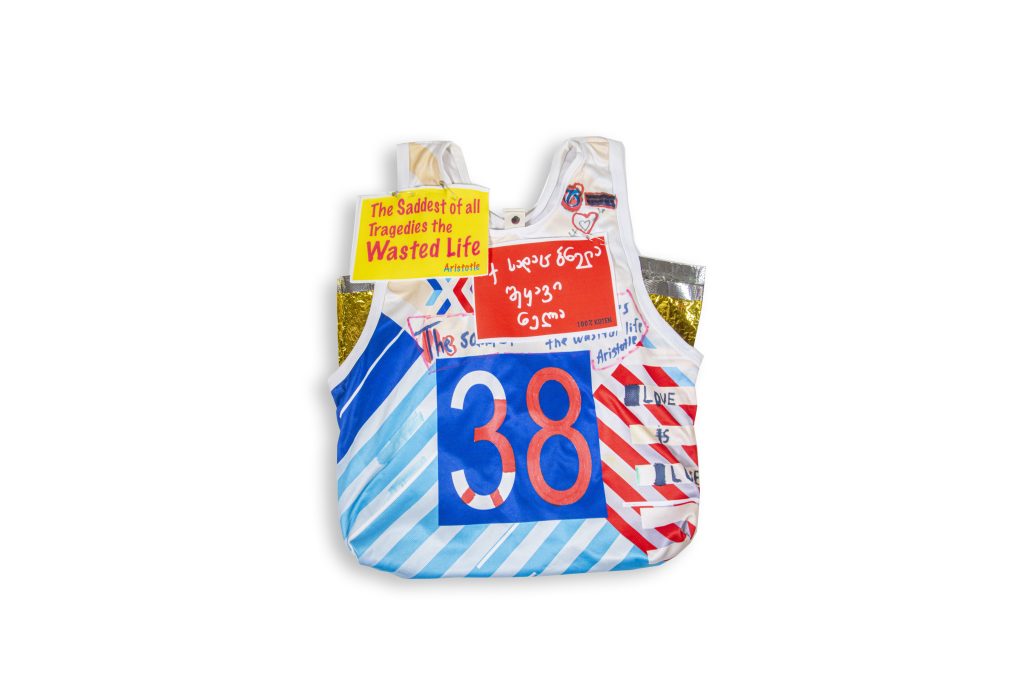
Plasticwatcher.ge already has its own network of volunteers – strangers, families who collect waste for Eka, as well as her friends, companies and organizations.
“When I first started doing this, I was like, ‘Wow, you’re doing this?’ Now everyone is used to it and expects what will happen next,” she says, and shows me a raincoat made from plastic bags and other garbage.
Anyone can buy items created by Eka through Plasticwatcher.ge. Plasticwatcher also has an Instagram page.
What will happen next
“My plan is to participate in many events, to show people what I do. I want them to remember that when they have trash in their hands, they can do something with it.”
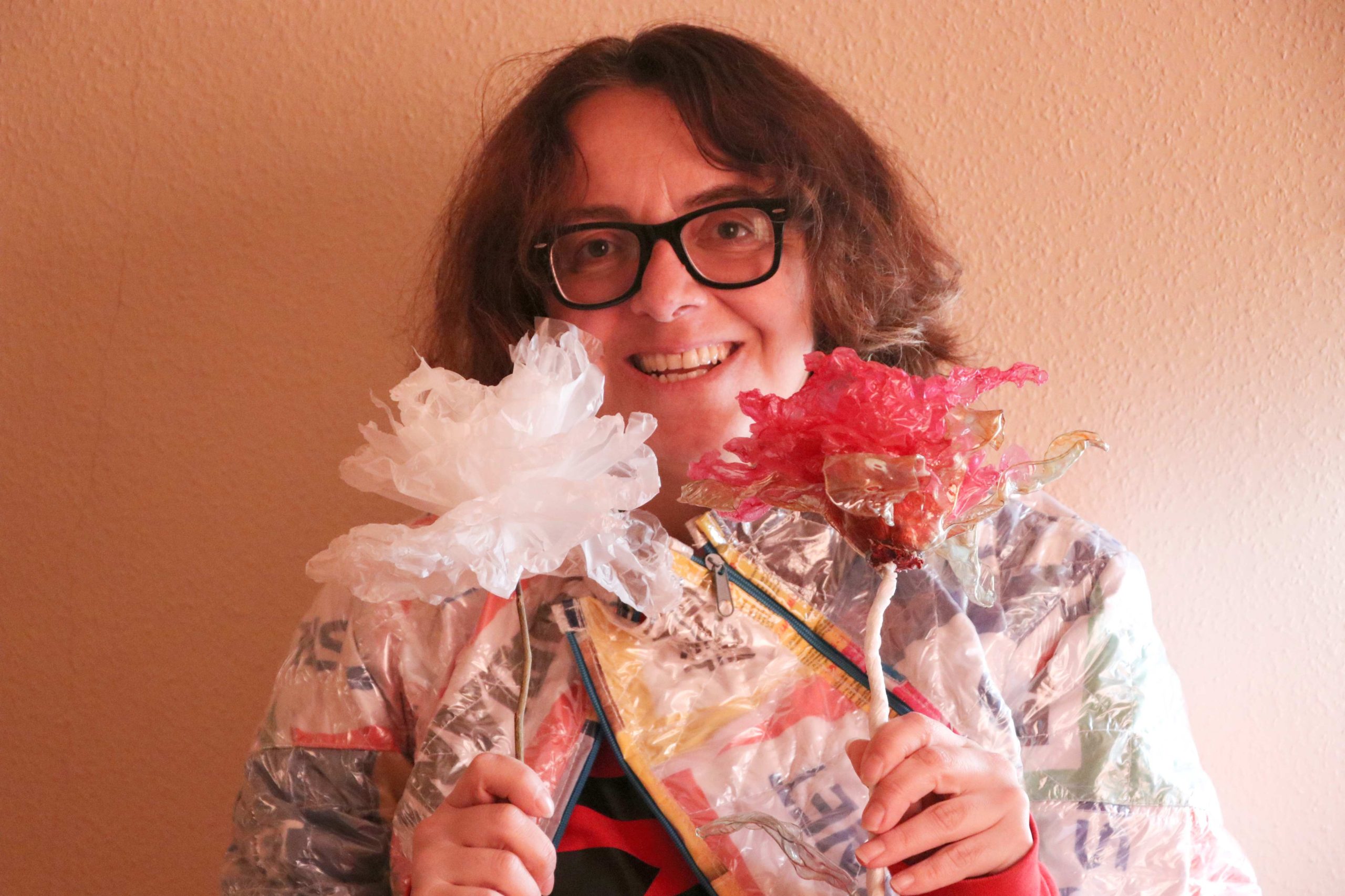
In the future, she is thinking of organizing an educational space, where people go and see the magic that can be created from waste.
Eka hasn’t counted how many things she’d created so far, but she estimates she’s recycled about half a ton of waste so far.
“I want to promote the circular economy and bring this way of thinking to people. The way we live now – you buy something, use it and throw it away – is in a linear economy. The circular economy makes many tasks easier, and doing business with this approach is fun and interesting.”
A circular economy is a system that aims to eliminate waste and continuously use resources that have already been consumed. The main principles of the circular economy are reuse, recycling, repair and rehabilitation, that is, all those methods that make a specific item or material usable again.
“I’m also a human being, not an angel, but I try to make all my behavior, all my purchases conscious,” she says. For example, even when buying clothes she will prefer good, high-quality clothes that she will use for many years. And if, for example, the furniture is broken, she thinks about how to reuse it instead of discarding it.
Eka knows that five people cannot change everything, but she is confident that if there is a desire to sort and recycle waste, then opportunities for it will appear.
Eka Asatiani
The story was created within the project “Empowering People for Circular Solutions in Georgia”, implemented by CENN with the support of the USAID’s Economic Security Program.











